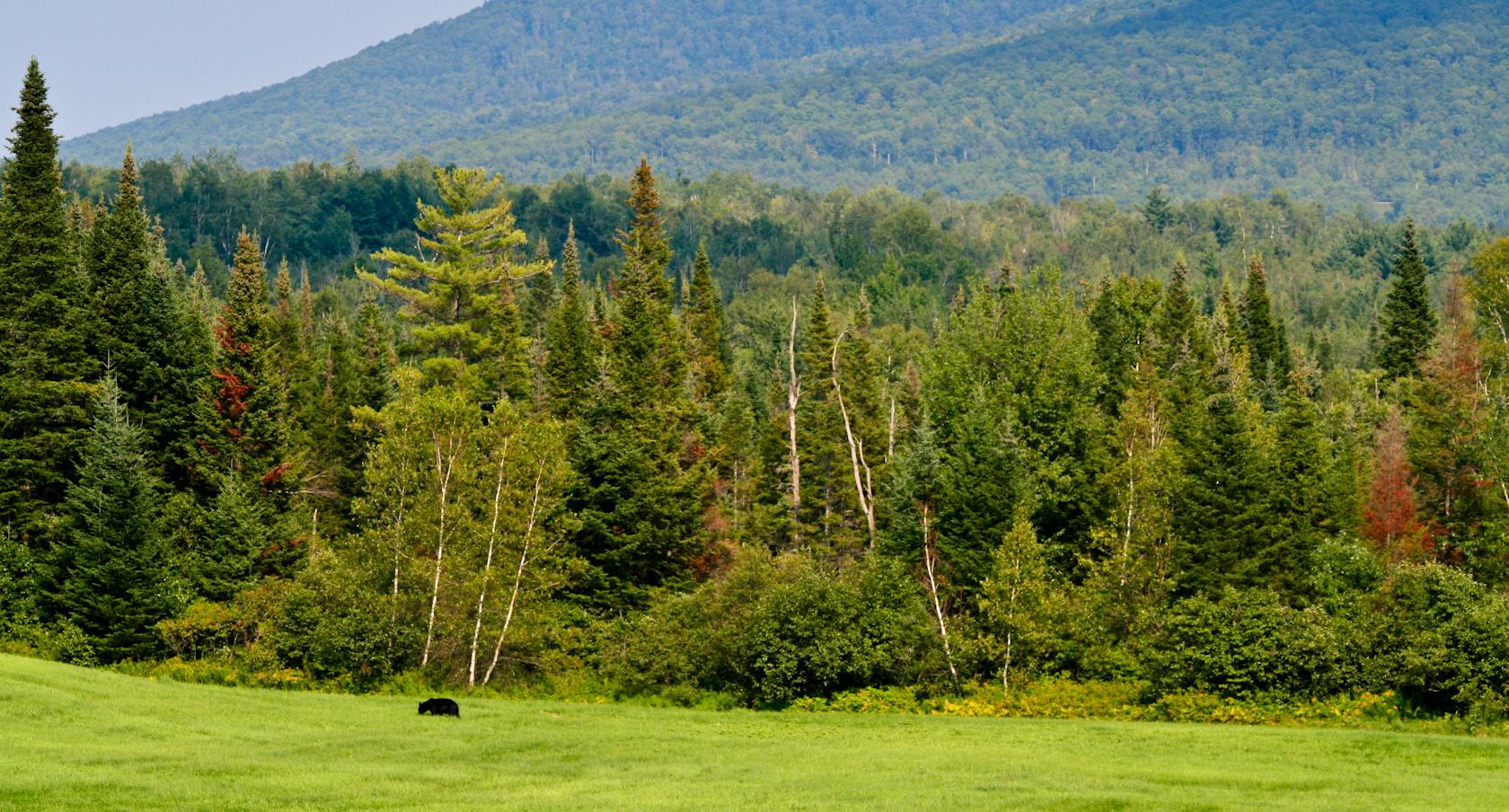- Tags:
- Advocacy

Black bear in northern New Hampshire by Diana LeRoi-Schmidt/Criana via Flickr/Creative Commons
On July 24, the Commission to Study the Efficiency and Effectiveness of the Fish and Game Department Operations met for the second time-its first meeting on July 16 was for organizational purposes where the main order of business was to elect a chairman and to set the schedule of future meetings. Senator Kevin Avard of Nashua will serve as chairman. As you recall, the Forest Society is one of twelve members of this commission.
During the July 24 meeting, Fish and Game Executive Director Glenn Normandeau gave an in-depth presentation on the agency’s budget and finances. One of the points the Director noted was the number 35, which is how many Conservation Officers are currently on staff there. That is important to remember since the Department’s organizational chart shows 52 positions are authorized in the law enforcement section-47 of which are Conservation Officers.
The problem? Six of those C.O, positions are “unfunded” in the current state budget meaning the Department cannot hire anyone to fill those openings. Another six funded positions are presently vacant because of retirements. At any one time, approximately twenty conservation officers are on duty patrolling the state in order to enforce hunting and fishing laws, OHRV laws, respond to wild animal sightings and conduct search and rescue operations. We may be a small state, but we are also one whose heritage is deeply connected to the land and water. That means thousands of people are drawn to the forests, mountains and lakes.
If there is a conflict between a bear and a resident, Fish and Game is called upon to address it. If someone goes missing in the woods, Fish and Game must lead the search and rescue effort. When you consider emergency services provided in addition to the routine work conservation offers are expected to perform, one major question the Commission needs to address is whether having only 35 CO’s (the current staff) or 41 CO’s (the authorized staff) adequate to meet the demand for services on New Hampshire’s 9,349 square miles.
Fortunately, this enforcement capacity issue did generate a lengthy discussion during the July 24 meeting. Although it did not produce a recommendation on how the State should address this problem, we will continue to work with our fellows members on the Study Commission to reach a workable solution to the one the major challenges facing the Fish and Game Department.
The next two meetings of Study Commission, which are open to the public, are on August 3 and August 10 starting at 10:00. It meets in Room 100 of the New Hampshire State House.

The Forest Advocate
Stay connected with advocacy news from NH and DC by reading current and past editions of our Forest Advocate e-newsletter.
